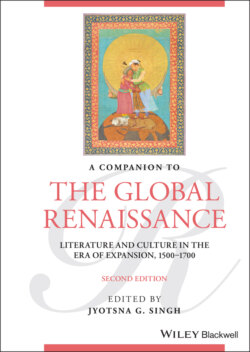Читать книгу A Companion to the Global Renaissance - Группа авторов - Страница 31
NOTES
Оглавление1 1 See Wood for a good summary of the debate by a Marxist with an “England first” perspective. Linebaugh and Rediker, alternatively, have attempted to present what might be called an “oceanic” Marxist view of the emergence of capitalism (see note 8).
2 2 This description of the importance of “geography” appears at the opening of Smith’s Bermuda chapter (Book V) in the Generall History of Virginia, 338–391, but he lifts it, as the bulk of the volume, from other period travel writing. See, for example, Purchas, 44.
3 3 See Bewes for a discussion of the continued relevance of “reification” as a concept of social analysis.
4 4 In the early modern period, the increasing alienation and dislocation imposed by the commodification of labor are complicated by the ties of personal debt that emerge in a cash-poor society such as England without credit cards or banks, but the implications of these ties are not the same, affectively or materially, as a “commons.” On debt, see Muldrew.
5 5 The literature on vagrancy is rich – and expanding. See, for example, Beier, Dionne and Mentz, Fumerton, and Woodbridge.
6 6 On Norwood, see Bach (on colonial mapping), chapter 2, especially 99–106, and Skura (on spiritual autobiography), as well as the Dictionary of National Biography.
7 7 One must use care in comparing peoples in different times and places so as not to fall into the “Time and the Other” dilemma (Fabian). I am not suggesting that the “Devil” that emerges in the situations Taussig describes are the same as the Satan of primitive accumulation in England, but it is certainly worth seeing that the imposition of the market has the devil in it to many peoples confronted with it for the first time, since this is a useful corrective to the widespread assumption today that the market is simply “normal.”
8 8 Linebaugh and Rediker track the emergence of an Atlantic economy in this way; even more expansively, Balasopoulos, 122–156, has imported the concept of the “oceanic” into early modern studies and usefully deployed it in a study of More’s Utopia. I build on his insights here.
9 9 Linebaugh and Rediker, too, use the example of the wreck of the Sea Venture as the core of their first chapter, and I extend their excellent work here.
10 10 See Marx (1976, 931–940) for other illustrations of the ways that colonialism could teach ordinary Europeans how unequal property relations worked to their disadvantage (he does not take into account here, alas, the lessons it might offer to native peoples).
11 11 I have used the Sheed translation of Augustine because I like it, but also given page numbers for the Latin.
12 12 On “weapons of the weak,” see Scott.
